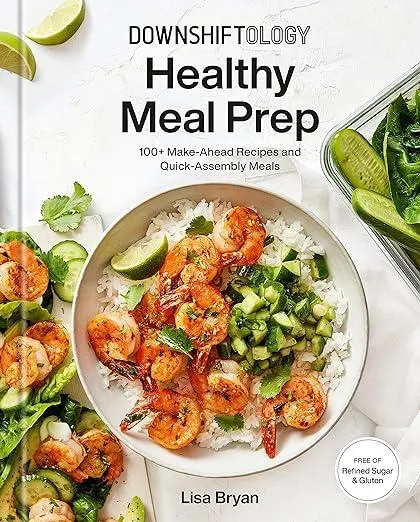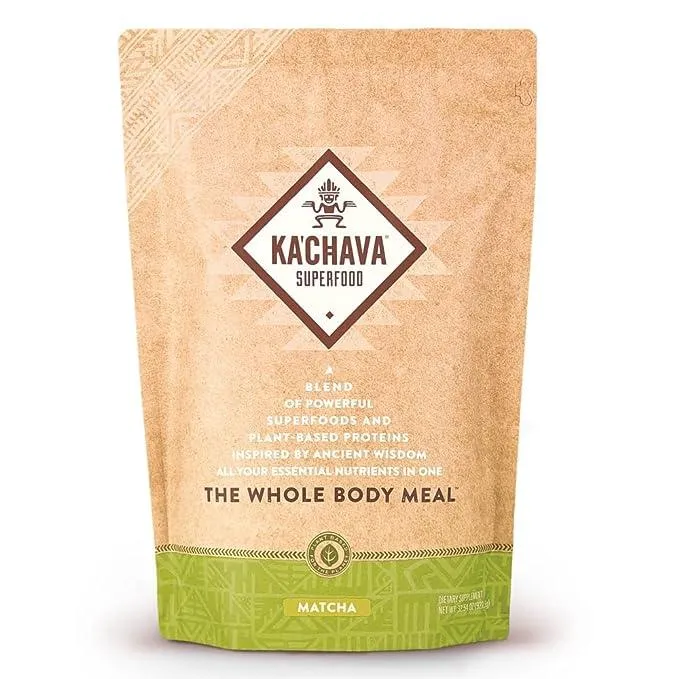HopSkip&Shop is an independent, advertising-supported consumer comparison service. The offers or products that appear on HopSkip&Shop are from third-party advertisers or partners from which HopSkip&Shop receives compensation. This compensation may impact how and where products appear on this site
FINANCIAL BLOG ARTICLES

GLUTEN-FREE RECIPES
GLUTEN-FREE RECIPES
This site provides an extensive collection of gluten-free recipes that cater to various needs and preferences. Whether you're looking for breakfast ideas, main courses, desserts, or snacks, you're likely to find numerous options that suit your dietary requirements.
Remember, when browsing any recipe site, it's important to ensure that all ingredients meet your specific gluten-free needs, as product formulations can change.
Embracing Specialty Diets for Health, Ethics, and Environment
This blog article targets consumers exploring or already following specialty diets such as vegan, keto, gluten-free, and others. With a significant rise in people adopting dietary restrictions for various reasons—ranging from health improvements and ethical considerations to environmental concerns—there is a vibrant discussion to be had about the nuances of each diet. This piece aims to educate readers on the fundamentals of each specialty diet, the nutritional science behind them, and how to navigate the challenges and benefits they bring.
Content will cover:
Introduction to Specialty Diets: A brief overview of popular diets, including vegan, keto, and gluten-free, highlighting the reasons behind their adoption.
Gluten-free diets have transcended the realm of niche dietary needs to become a significant aspect of the modern approach to nutrition. This dietary shift emphasizes the importance of catering to individual health conditions, such as celiac disease or gluten sensitivity, where the elimination of gluten is not a preference but a necessity for maintaining health and well-being .
Moreover, the choice of a gluten-free diet often reflects broader ethical beliefs and environmental concerns. Some individuals opt for gluten-free products as part of a more sustainable and ethical consumption pattern, seeking out products that align with their values regarding animal welfare, ecological impact, and support for local and organic farming practices.
The popularity of gluten-free diets highlights a growing societal trend towards more personalized nutrition. People are increasingly seeking diets that not only prevent illness but also optimize health, recognizing that what works for one individual may not work for another. This personalized approach is supported by emerging research and greater availability of diverse food products catering to specific dietary needs .
However, it's essential to approach gluten-free diets with an informed perspective. Research indicates that while gluten-free diets are essential for those with specific health conditions, they can sometimes lead to reduced intake of certain nutrients, such as fiber and folate, when not carefully managed . Therefore, choosing a gluten-free diet requires careful consideration of one's nutritional needs, ensuring that the diet is balanced and supports overall health.
In conclusion, the shift towards gluten-free diets as part of a broader move towards personalized nutrition signifies an increased awareness of the role of diet in promoting well-being. It acknowledges the complexity of individual health conditions and the desire for a dietary approach that respects personal values and environmental sustainability.
Specialty diets such as vegan, keto, and gluten-free have gained popularity not just for ethical or environmental reasons but also for their potential health benefits. These diets can significantly contribute to overall health, including weight management, improved heart health, and a reduced risk of chronic diseases.
Health Benefits: Discussion on how these diets can contribute to overall health, including weight management, improved heart health, and reduced risk of chronic diseases, with insights from.
Specialty diets such as vegan, keto, and gluten-free have gained popularity not just for ethical or environmental reasons but also for their potential health benefits. These diets can significantly contribute to overall health, including weight management, improved heart health, and a reduced risk of chronic diseases.
Weight Management
Adopting a specialty diet can be an effective strategy for weight management. For instance, the ketogenic diet, which emphasizes high-fat and low-carbohydrate intake, can help in reducing body fat more efficiently by forcing the body to burn fat for energy instead of carbohydrates . Similarly, vegan diets, which exclude all animal products, often result in a lower calorie intake and can thus contribute to weight loss and maintenance .
Improved Heart Health
Heart health is another significant benefit associated with specialty diets. For example, diets rich in plant-based foods, like the vegan diet, can lead to lower levels of cholesterol, blood pressure, and reduced risk of heart disease . The Mediterranean diet, which is rich in fruits, vegetables, nuts, whole grains, and olive oil, has been shown to improve heart health and reduce the risk of heart disease .
Reduced Risk of Chronic Diseases
Specialty diets can also play a crucial role in reducing the risk of chronic diseases. Vegan and Mediterranean diets, in particular, have been associated with a lower risk of type 2 diabetes, certain types of cancer, and neurological conditions. This is likely due to their high content of dietary fiber, vitamins, minerals, and antioxidants, which have protective effects against chronic diseases .
Insights
The adoption of specialty diets should be based on individual health needs, preferences, and ethical considerations. It's essential to ensure that the diet is well-balanced and provides all necessary nutrients. Consulting with a healthcare provider or a nutritionist can help in tailoring a diet plan that supports one's health goals while ensuring nutritional adequacy.
In conclusion, specialty diets can offer a range of health benefits, from supporting weight management to improving heart health and reducing the risk of chronic diseases. Their effectiveness depends on careful planning and consideration of individual health needs and nutritional requirements.
🌐 Sources
medicalnewstoday.com - Benefits of eating healthy: Heart health, better mood, and ...
nhsinform.scot - Health benefits of eating well - Food and nutrition
heart.org - The Ten Ways to Improve Your Heart Health Infographic
Ethical and Environmental Considerations: Exploration of how diet choices impact animal welfare, climate change, and sustainability, inspired by the passions of Generation Z and the ethical definitions.
Ethical and environmental considerations are increasingly influencing dietary choices, particularly among Generation Z, who are passionate about animal welfare, climate change, and sustainability. These concerns revolve around the impact of food production on the environment, the ethical treatment of animals, and the long-term viability of our planet's resources.
Animal Welfare: The ethical treatment of animals in food production systems is a significant concern. All food production systems, to some degree, harm animals, with the majority of these harms affecting wildlife, not just the animals being farmed. Ethical eating encompasses not only environmental considerations but also the humane treatment of animals, advocating for practices that minimize harm and suffering .
Climate Change: Diet choices directly impact climate change. The production of animal-based foods generally requires more resources and emits higher levels of greenhouse gases compared to plant-based foods. Consequently, shifting towards a plant-based diet can significantly reduce one's carbon footprint, helping to mitigate the effects of climate change .
Sustainability: Sustainability involves meeting our current needs without compromising the ability of future generations to meet theirs. Sustainable and ethical eating practices prioritize the conservation of natural resources, support for local economies, and minimal environmental impact. This includes choosing foods that are not only healthy but also produced in ways that are sustainable for the planet .
🌐 Sources
Making informed diet choices based on ethical and environmental considerations can contribute significantly to animal welfare, climate change mitigation, and the sustainability of our planet. Generation Z's enthusiasm for these issues highlights the growing awareness and demand for food systems that are ethical, environmentally friendly, and sustainable.
🌐 Sources
ncbi.nlm.nih.gov - Animal Harms and Food Production: Informing Ethical ...
link.springer.com - Environment, Development and Sustainability
nutritionbymia.com - Sustainable and Ethical Eating: A Delicious Path to a Better ...
climate.nasa.gov - Home – Climate Change: Vital Signs of the Planet
Nutritional Guidance:
Offering advice on how to maintain balanced nutrition, addressing potential deficiencies, and ensuring a varied and complete diet within these restrictions.
Maintaining Balanced Nutrition: Maintaining balanced nutrition involves consuming a variety of nutrients essential for health, growth, and overall well-being. The Dietary Guidelines for Americans provide a foundation for what to eat and drink to meet nutrient needs, promote health, and prevent chronic diseases. To ensure a varied and complete diet, it's crucial to address potential deficiencies and incorporate essential dietary elements effectively.
Balanced Diet Principles: A balanced diet includes a variety of foods from all food groups: fruits, vegetables, grains, protein sources, and dairy or its alternatives. The Eatwell Guide emphasizes eating at least 5 portions of a variety of fruits and vegetables daily, whole grains, lean proteins, and low-fat dairy products, ensuring a nutrient-rich intake .
Addressing Deficiencies: Identifying and addressing micronutrient deficiencies is vital for optimal health. Deficiencies in vitamins and minerals can lead to health issues. A systematic approach to identifying deficiencies involves regular health check-ups and incorporating foods rich in the deficient nutrients or considering supplementation as recommended by healthcare professionals .
Practical Advice for Varied Diet: Incorporate a wide range of foods to cover all nutritional bases. This includes colorful vegetables and fruits, whole grains, various protein sources (including plant-based options), and healthy fats. Varied diets help ensure the intake of essential nutrients and prevent deficiencies .
Strategies for Overcoming Restrictions: For those with dietary restrictions (due to allergies, ethical beliefs, or health conditions), it's important to find alternative nutrient sources. For example, individuals following a vegan diet can obtain calcium from fortified plant milks and leafy greens, and iron from legumes and fortified cereals .
In conclusion, a balanced, varied diet is key to addressing nutritional deficiencies and ensuring overall health. Regular monitoring and adjustments, based on individual health needs and potential dietary restrictions, will help maintain optimal nutrition.
Real-Life Stories:
Featuring testimonials from individuals who have experienced significant health or lifestyle benefits from adopting a specialty diet.
Here are three real-life stories from individuals who have experienced significant health or lifestyle benefits from adopting a specialty diet:
Embracing a 'Clean' Diet: A Reddit user shared their experience with transitioning to a 'clean' diet, focusing on whole, minimally processed foods. They noticed an impressive resilience in their body, contrasting with coworkers who consumed a daily diet of donuts and candy. The change led to improved energy levels and a better overall sense of well-being .
Success with Fit for Life: Another individual's journey involved joining the Fit for Life program, which emphasizes healthy eating choices and staying active. This person highlighted the importance of having the right mindset to become healthier. By making more informed food choices and incorporating regular physical activity, they experienced a transformation not just in their physical health but also in their mental and emotional well-being .
Vegan Diet for Heart Disease Management: A testimonial from someone who adopted a vegan diet to manage heart disease revealed significant health benefits. After a year on a vegan diet, the individual felt great improvements in their cardiovascular health, which they believe contributed to their mild experience with a viral infection. This story underscores the potential of diet and exercise in achieving tangible health outcomes, especially in managing and potentially mitigating chronic health conditions .
These stories highlight the profound impact that dietary choices can have on health and lifestyle, underscoring the importance of a balanced, informed approach to nutrition.
Finding and Choosing Products:
Tips on how to find and select food products and resources that support these dietary choices, including access to healthy dietary patterns.
Finding and choosing food products that support healthy dietary patterns involves understanding what constitutes a balanced diet and knowing where to access diverse and nutritious foods. The USDA's MyPlate offers a visual guide for balancing meals with the five food groups: fruits, vegetables, grains, protein foods, and dairy . Here are tips to find and select food products that align with these guidelines and ensure your dietary choices are inclusive and accessible to all:
Prioritize Whole Foods: Focus on whole, minimally processed foods across all food groups. Look for whole grains as the first ingredient in grain products, fresh or frozen fruits and vegetables without added sugars or salts, lean protein sources, and low-fat or fat-free dairy options .
Diversity in Choices: Include a variety of foods from each food group to ensure you're getting a broad spectrum of nutrients. This includes consuming vegetables of all types and colors, a range of fruits, different whole grains, various protein sources (including plant-based options), and dairy or fortified alternatives .
Accessibility and Inclusivity: Recognize that access to fresh and diverse food options varies by location and economic status. Support initiatives that promote food access, such as local farmers' markets, community gardens, and food co-ops. Consider affordability and cultural preferences when planning meals, ensuring that dietary advice is inclusive to people from all backgrounds .
Reading Labels: When selecting packaged foods, read nutrition labels to choose products lower in added sugars, sodium, and unhealthy fats. Opt for items with shorter ingredient lists, which often indicate less processing .
Use Reliable Resources: Utilize resources like MyPlate.gov for tips on healthy eating patterns and how to incorporate all food groups into your diet in a balanced way . Educational videos and websites can also provide guidance on making diets accessible and inclusive for everyone .
By applying these tips, you can make informed decisions about the food products and resources you choose, supporting a healthy, balanced, and inclusive diet.
🌐 Sources
Eating out
Eating out while maintaining a gluten-free diet can be challenging, yet with careful planning and communication, it's entirely possible to enjoy a safe and satisfying dining experience. Here are five strategies to help ensure your outing remains gluten-free:
Research Restaurants in Advance: Look for restaurants with a clear gluten-free menu or those known for accommodating gluten-free diets. Websites and apps dedicated to gluten-free dining, such as Wheatless Wanderlust, can be invaluable resources .
Communicate Your Needs Clearly: When dining out, clearly explain your dietary restrictions to the staff. Don't hesitate to ask questions about how food is prepared and clarify that your gluten-free request is due to health reasons, not just a preference .
Choose the Right Establishment: Opt for restaurants that are likely to have a good understanding of gluten-free needs. Some cuisines, like Mexican or Thai, naturally offer more gluten-free options. Calling ahead or dining during off-peak hours can also help ensure that the staff has more time to address your needs .
Be Aware of Cross-Contamination Risks: Even if a dish is gluten-free, there's always a risk of cross-contamination in the kitchen. Ask about the restaurant's practices regarding food preparation to ensure they have separate areas and utensils for gluten-free meals .
Prepare for Success: Familiarize yourself with gluten-free diet basics and focus on the positive aspects of what you can eat. Preparation can help you make informed choices and advocate for your health needs effectively. Bring snacks as a backup in case options are limited .
Following these strategies can help minimize the stress of dining out and allow you to enjoy a variety of culinary experiences without compromising your gluten-free diet. Always value your health and well-being by taking the necessary precautions to avoid gluten exposure.
🌐 Sources
Wheatless Wanderlust - The Complete Guide To Eating Out Gluten Free
Grubhub - Gluten-free restaurant guide: How to best serve your...
Gluten Free Works - 5 Steps to a Successful Gluten-Free Transition
Making the Transition:
Practical advice for those considering a shift to a specialty diet, including how to gradually introduce dietary changes and navigate social and lifestyle adjustments.
Transitioning to a specialty diet can be a rewarding yet challenging journey, involving both dietary changes and lifestyle adjustments. Whether it's plant-based, keto, gluten-free, or any other specialized diet, the key to a successful transition is gradual change and informed choices. Here's practical advice based on insights from various sources:
Start Gradually: Instead of an overnight overhaul, start by incorporating small changes into your diet. This could mean adding more whole plant foods if you're transitioning to a plant-based diet or reducing processed foods and sugars for a healthier diet. The goal is to make these changes sustainable over the long term .
Educate Yourself: Knowledge is power when it comes to dietary changes. Understanding the nutritional foundation of your chosen diet is crucial. This includes knowing which foods to eat, which to avoid, and how to balance nutrients to meet your body's needs .
Meal Planning and Prep: Planning your meals can help ease the transition. Start by exploring recipes that fit your new diet. Meal prepping can also help you stay on track during busy days and ensure you're meeting your nutritional needs .
Navigating Social Situations: Social events can be challenging when you're on a specialty diet. Planning ahead can help; consider eating beforehand or bringing your own dishes to share. Communicating your dietary choices with understanding and confidence is also key .
Seek Support: Whether it's from friends, family, online communities, or professionals like dietitians, support can make the transition smoother. Sharing experiences, tips, and recipes with others can provide motivation and new ideas.
Be Patient with Yourself: Lifestyle changes take time, and it's normal to face challenges along the way. Celebrate your progress, learn from setbacks, and adjust your approach as needed to stay aligned with your health goals.
By adopting a gradual approach, educating yourself, planning ahead, navigating social situations wisely, seeking support, and being patient, you can successfully transition to a specialty diet and enjoy the health and lifestyle benefits it brings.
🌐 Sources
Gluten intolerance:
Gluten intolerance, also known as non-celiac gluten sensitivity, affects individuals who cannot tolerate gluten, a protein found in wheat, barley, and rye. Unlike celiac disease, gluten intolerance doesn't damage the small intestine but can cause uncomfortable symptoms. Here are five common symptoms to watch for and steps to take if you experience them:
Digestive Issues: Symptoms include diarrhea, constipation, and smelly feces. Individuals may experience inflammation in the digestive tract after consuming gluten, leading to discomfort and bowel movement irregularities .
Stomach Bloating and Pain: Bloating is a feeling of having an inflated balloon in the abdomen, often accompanied by pain. This is one of the most common complaints among those with gluten intolerance .
Tiredness or Fatigue: Despite adequate sleep, individuals may feel excessively tired, which could be related to the body's reaction to gluten .
Bone or Joint Pain: Gluten intolerance can cause inflammation that leads to joint and bone pain, making it uncomfortable to perform daily activities .
Headaches: Regular occurrences of unexplained headaches or migraines could be a sign of gluten intolerance .
What to Do If You See Symptoms:
Consult a Healthcare Professional: If you suspect you have gluten intolerance, consult a healthcare professional. They can rule out celiac disease with specific tests and help diagnose gluten sensitivity.
Trial Gluten-Free Diet: Under professional guidance, eliminate gluten from your diet temporarily to see if symptoms improve. This involves avoiding all foods that contain wheat, barley, and rye.
Monitor Symptoms: Keep a food diary to track what you eat and any symptoms you experience. This can help identify patterns and specific triggers.
Nutritional Balance: Ensure your gluten-free diet is balanced. Avoiding gluten can lead to deficiencies in certain nutrients, so it may be beneficial to consult a dietitian.
Identifying and managing gluten intolerance can significantly improve quality of life for those affected. Always seek guidance from healthcare professionals before making significant dietary changes.








